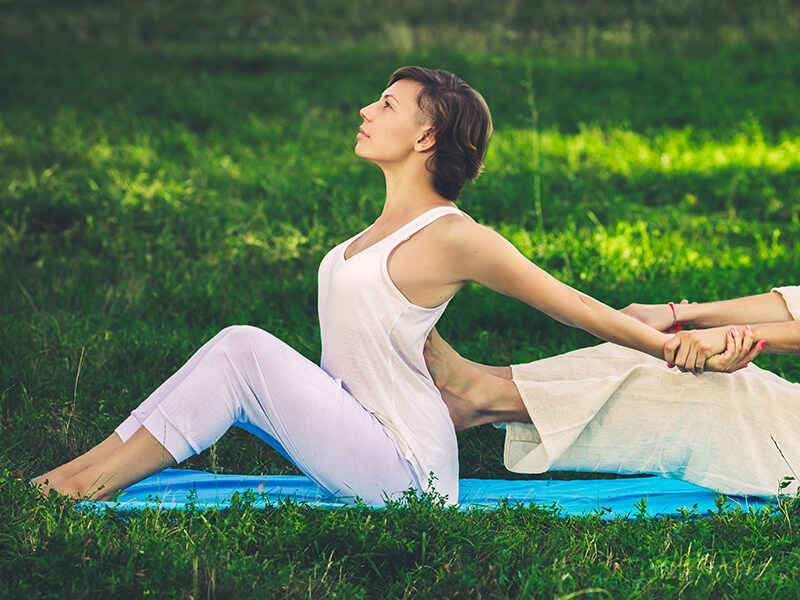Thai massage is a traditional Southeast Asian therapy used for thousands of years throughout Eastern and Southern Asia. Current-day Thai massage includes Ayurvedic and Traditional Chinese Medicine principles and has a distinctly yogic flare. This form of massage offers incredible physical and mental health benefits.
What To Expect
Unlike many other forms of massage, this therapy is performed entirely clothed. Loose-fitting clothing like a tank top and comfortable knee-length shorts are best for this experience. Rather than a traditional massage table, this form of massage takes place on a floor mat or low, adjustable bed or cot. Your massage therapist will move your body parts through a series of stretches, poses, and cradles. They may apply pressure and use their hands, elbows, knees to stretch, rock, pull, and manipulate your body. You may feel some tension as the practitioner takes you through the moves, but you should not feel pain. Let your massage therapist know if you experience anything beyond minor positional discomfort.
Benefits
This therapy focuses on improving circulation, flexibility, joint mobility, and energy levels. Thai massage can relieve joint and muscle pain, increase range of motion, reduce back pain, and lower cortisol levels. This practice can lower anxiety levels with results similar to traditional yoga.
Contraindications
Thai massage is not for everyone. Persons with a history of osteoporosis, osteoarthritis, heart disease, stroke, current fever, active cancer, spinal disorders, or recent operations should not receive Thai massage unless under the recommendation of their medical care team. Be honest with your practitioner during the intake portion of your visit and raise any concerns at that time. Your practitioner can avoid problem areas during a particular session, but they need to know about it first.
Frequency
Depending on your needs, the recommended frequency of massage will vary. For relaxation and flexibility purposes, an average of 1-2 appointments per month will suffice. Be mindful that Thai massage is not a substitute for regular yoga practice. For injury or chronic issues, speak to your massage therapist about creating a treatment plan.
Aftercare
Following Thai massage, you will want to take special care to hydrate and relax. Take a warm (not hot!) bath a few hours after your Thai massage session. Avoid alcohol and caffeine for 24 hours. Eat a light meal or snack following your Thai massage. Avoid strenuous activity for the rest of the day. Instead, take your time to unwind and rest so your body can recover. Light activities like walking and regular chores are fine. Do not engage in heavy exercise or sports activity for 24 hours following Thai massage. Avoid using a sauna or hot tub, especially if you feel sore, as this will further irritate inflamed tissues.
